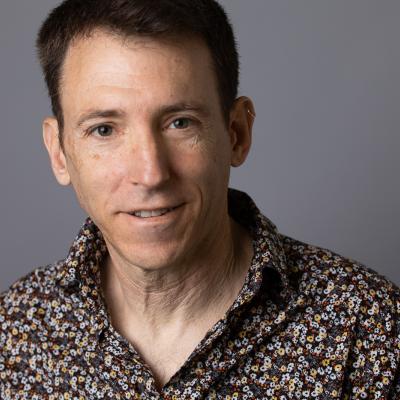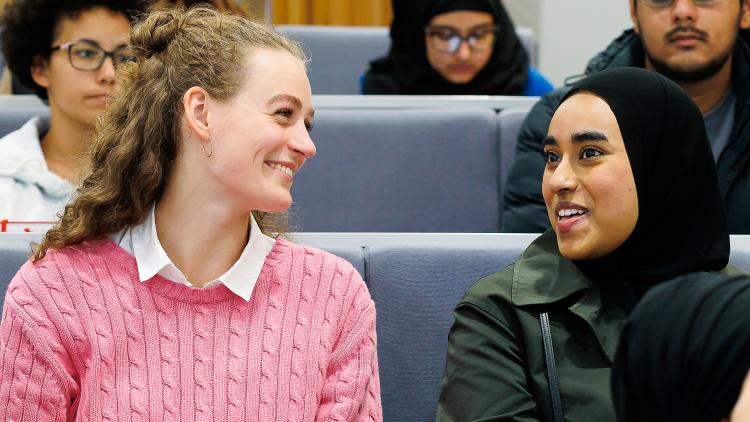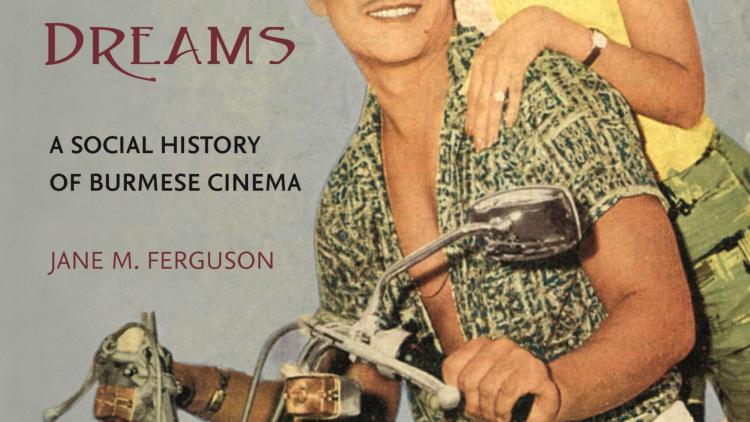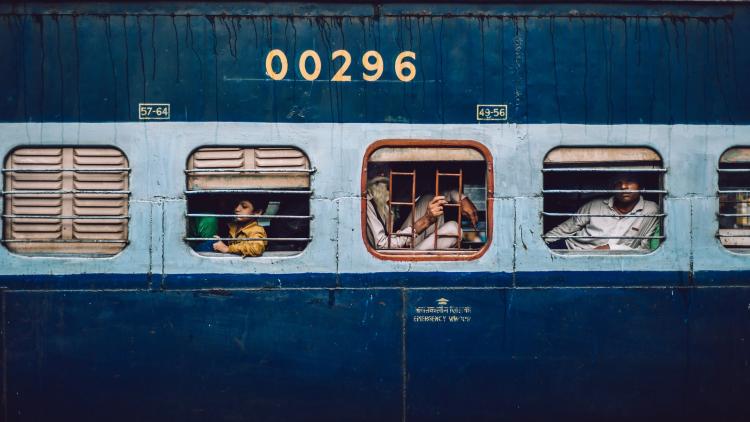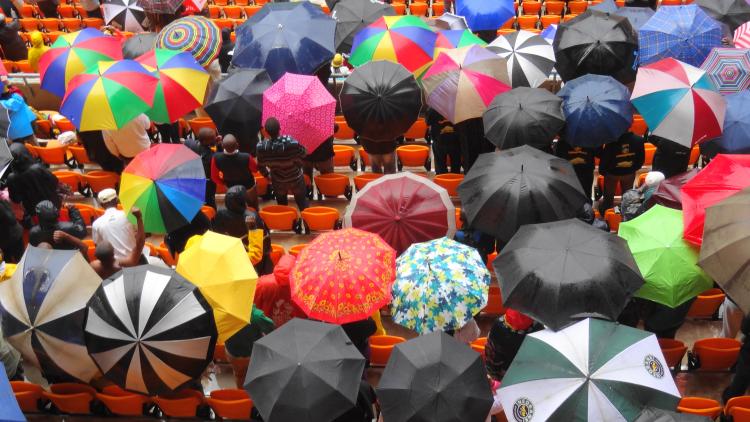Research Degrees (MPhil/PhD) Cultural, Literary and Postcolonial Studies
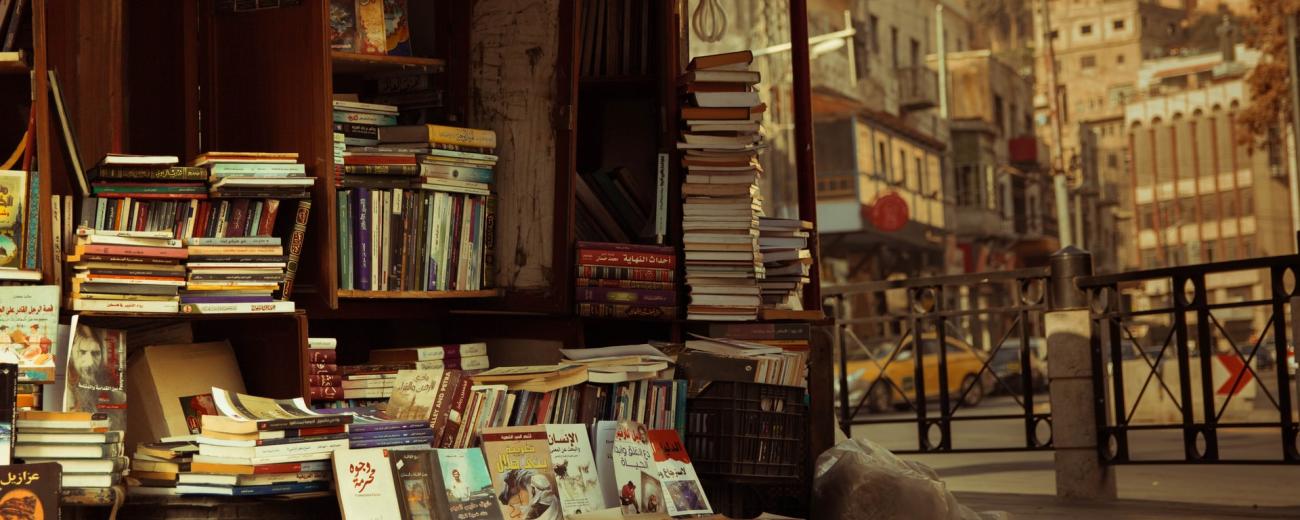


Key information
- Duration
- 3 years
- Attendance mode
- Full-time or part-time
- Location
- Russell Square, College Buildings
- Fees
-
Home student fees (full-time): £4,860 per year
Home student fees (part-time): £2,430 per year
Overseas student fees (full-time): £22,490 per year
Overseas student fees (part-time): £11,245 per yearPlease note that fees go up each year.
See research fees for further details. - Entry requirements
-
We normally require a 2.1 bachelor's degree (or its equivalent) plus a Masters degree in appropriate subject area plus one reference. In exceptional cases we may accept applicants who do not meet these criteria if they show evidence of a strong Masters degree and/or appropriate level of relevant work experience. International applicants should also see Doctoral School English language requirements
Course overview
The SOAS Centre for Cultural, Literary and Postcolonial Studies (CCLPS) welcomes applications from MPhil/PhD students wishing to undertake research in the disciplines of Comparative Literature, Cultural Studies and Postcolonial Studies.
The Centre has developed its own MPhil training programme which will enable research students to be registered in the Centre rather than in specific regional Departments or those of other disciplines. The Centre places its emphasis on the acquisition of critical theoretical skills and in-depth regional, linguistic and cultural knowledge with specific reference to Asia, Africa and the Middle East, but also to literatures written in European languages.
Prospective research students will have the unique opportunity to work on an exceptionally wide range of topics, theoretical and critical, supervised according to the expertise of a wide range of academic staff across the Faculty and SOAS.
A research degree in Comparative Literature (Asia/Africa/the Near and Middle East), Cultural Studies (Asia/Africa/The Middle East) or Postcolonial Studies (Asia/Africa/The Near and Middle East) normally takes three years, or up to a maximum of four years should periods of fieldwork/research and material collection be required. Part-time registration is also possible.
Why Cultural, Literary and Postcolonial Studies at SOAS?
- SOAS is specialist in the studies of Africa, the Middle East, South Asia and South East Asia
- SOAS is ranked 1st in London in the Complete University Guide 2021 for Middle Eastern and African Studies, and 6th in the UK
- Ranked 8th in the UK in the Complete University Guide 2021 for South Asian Studies
Structure
In the first year, students prepare for research by following an MPhil training programme convened by the Chair of the Centre for Cultural, Literary and Postcolonial Studies. Students will also be strongly encouraged to attend the core theory courses in the three disciplines, the other elements being agreed between the student, the Research Tutor (a member of the CCLPS Steering Committee) and the supervisor(s). Optional elements may consist of specialist disciplinary, language or regional culture courses, attendance of which can be agreed between the student and the supervisory committee.
MPhil students are required to attend the CCLPS Weekly Research Training Seminar and a generic research methods course offered within the Faculty of Languages and Cultures, convened by the Associate Dean for Research. The generic research methods training includes courses offered by the Academic Development Directorate (ADD) and the SOAS Library .
Doctoral School website also offers information on research training across London higher education institutions.
MPhil/PhD students are in addition expected to attend regularly the Centre’s seminar series, lectures, conferences and the CCLPS Postgraduate Annual Conference which started in June 2012 and is annually organised by the CCLPS PhD community. All details of CCLPS events will be available on the CCLPS pages. Third and Final Year CCLPS PhD students are asked to present their research projects in the CCLPS seminars and lecture series as that constitute an important element of their professional training.
Upgrade procedure
MPhil students submit an upgrade chapter (of about 10,000-12,000 words excluding bibliography), typically including the following elements:
- research rationale and context of proposed research
- literature review
- main research questions
- theoretical and methodological framework & considerations
- proposed research methods
- rthical issues (where applicable)
- outlining structure of PhD dissertation
- schedule of research and writing
- bibliography
Adjustments to one or more of these sections, including additions or deletions where appropriate, are possible by prior arrangement between the students and lead supervisors.
This upgrade proposal is assessed by the student’s research committee, based on a 20-30 minute oral presentation, followed by a discussion, also open to other staff and student members of the Centre for Cultural, Literary and Postcolonial Studies. On successful completion of the upgrade chapter, students are formally upgraded to PhD and proceed to the second year. (If the assessors consider there to be shortcomings in the upgrade proposal, students will be asked to revise it to their satisfaction before the upgrade to PhD status can be confirmed.) Students are not normally permitted to proceed to the second year until the upgrade process has been completed.
Students studying part-time take the MPhil training seminar in the first year and write the upgrade paper in the second year. The length of time for field or research and material collection, and writing up, is adjusted accordingly.
Degrees are awarded by SOAS University of London and are subject to SOAS University of London regulations.
CCLPS weekly research training seminar
In addition to generic methods training, MPhil/PhD students in the CCLPS are required to attend a weekly Research Training Seminar in the disciplines of Comparative Literature, Cultural Studies and Postcolonial Studies as well as in interdisciplinary methods and methodologies in term one and two. The aim of the training programme is to provide a thorough grounding in theory, methods, regional, cultural, linguistic and any special disciplinary expertise that may be required for the research.
The focus of the CCLPS MPhil/PhD Research Training Seminar will be on the disciplines of Comparative Literature, Cultural Studies and Postcolonial Studies, and in relation to the literary, critical and cultural practices of Asian and African traditions. The programme of training will also be supported by regular CCLPS Lecture and seminar series, conferences and workshops and the CCLPS Annual Postgraduate Conference.
CCLPS training sessions
The CCLPS training sessions are designed to offer:
- analysis of and a grounding in theoretical premises and critical paradigms underlying the three disciplines and their intertwined trajectories and interdisciplinarity
- a critical exploration of European and non-European critical traditions
- a critical grounding in the crossing of Humanities and Social Sciences critical methods and methodologies
- practical analytic exercises and selective in-depth analysis of certain texts as well as cultural phenomena and institutions, particularly in relation to the field of Cultural Studies
- modes of engagement with critical scholarship and ways of constructing theoretical frames
- a critical grounding in the new theories on ‘World Literature'
- critical contexts in which students are able to identify and pursue figures, schools, theories they deem relevant to their work - the training sessions are not designed to offer general surveys
- exercises in the application of certain analytic tools and critical methods, particularly in relation to adopting a comparative method of study, a postcolonial approach to research and cultural studies strategic interdisciplinarity
- training in fieldwork and collection and analysis of data
- training in methods used for media and film studies
- training in practices of reading the corpus of the thesis or its primary material
- training in presentation, dissemination, communication of research and ways of using feedback on one’s project as students are asked to present on their 'literature review' in term 1 and on 'ways of reading their corpus' in terms 2
- the CCLPS Research Training Seminar also offers the opportunity for first year students to meet and greet their senior CCLPS PhD students and exchange views and experiences of the CCLPS postgraduate community.
The CCLPS weekly Research Training Seminar aims at grounding our new MPhil/PhD students in various theory and practice based methodology so that the agency of non-European traditions may be identified and exercised, strengthened by the unique range of research activities and regional expertise offered at SOAS. This is also the envisioned path through which students may be able not only to place their work in a discipline, but also to plan future contributions in this discipline, while expanding the spheres of their respective fields.
Important notice
The information on the website reflects the intended programme structure against the given academic session. The modules are indicative options of the content students can expect and are/have been previously taught as part of these programmes. However, this information is published a long time in advance of enrolment and module content and availability is subject to change.
Teaching and learning
Research will be guided throughout by a research committee of three core CCLPS members, consisting of one primary supervisor (core CCLPS Faculty of Languages and Cultures member) and two supporting supervisors in an advisory capacity (CCLPS core or SOAS members). Depending on the nature of the research joint supervision is sometimes recommended, under the direction of two supervisors.
SOAS Library
SOAS Library is one of the world's most important academic libraries for the study of Africa, Asia and the Middle East, attracting scholars from all over the world. The Library houses over 1.2 million volumes, together with significant archival holdings, special collections and a growing network of electronic resources.
Scholarships
Fees and funding
Fees for 2023/24 entrants per academic year
| Home students | Overseas students | |
|---|---|---|
| Full-time | £4,860 | £21,630 |
| Part-time | £2,430 | £10,815 |
Please note that fees go up each year.
- See research fees for further details.
Employment
Graduates of the School of Languages, Cultures and Linguistics leave SOAS not only with linguistic and cultural expertise, but also with skills in written and oral communication, analysis and problem solving.
Recent graduates have been hired by:
- Africa Matters
- Amnesty International
- Arab British Chamber of Commerce
- BBC World Service
- British High Commission
- Council for British Research in the Levant
- Department for International Development
- Edelman
- Embassy of Jordan
- Ernst & Young
- Foreign & Commonwealth Office
- Institute of Arab and Islamic Studies
- Middle East Eye
- Saïd Foundation
- TalkAbout Speech Therapy
- The Black Curriculum
- The Telegraph
- United Nations Development Programme
- UNHCR, the UN Refugee Agency
- Wall Street Journal
Find out about our Careers Service
